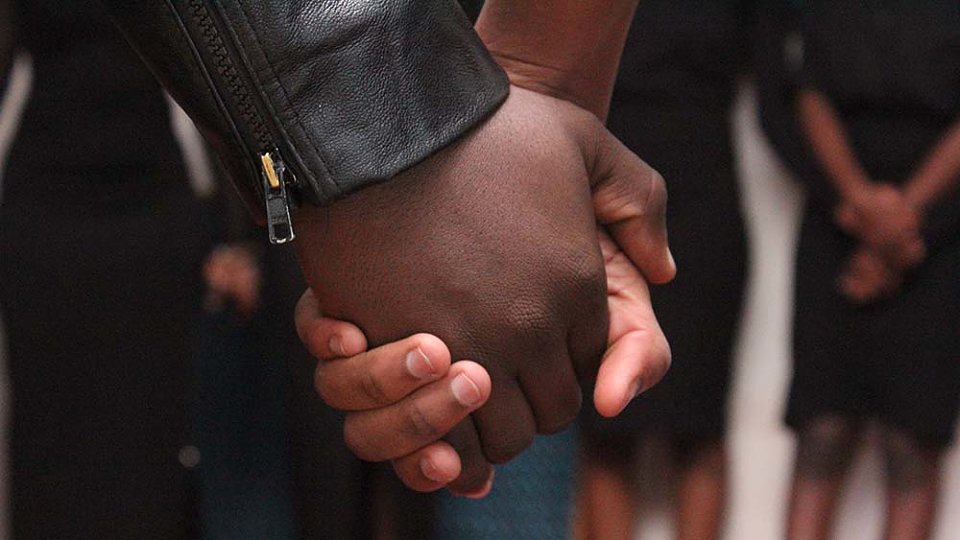'My skin is against me.'
In 1895, the first black professional baseball player, John “Bud” Foster, wrote about the discrimination he faced at not being able to join a team.
“My skin is against me,” Foster said. “If I had not been quite so black, I might have caught on as a Spaniard or something of that kind. The race prejudice is so strong that my black skin barred me. My skin is against me.”
I was 22 the first time I felt my skin. As a white person growing up in rural Missouri, I’d never thought about my skin, other than when I had a rash or a cut. But here I was, sitting in a soccer stadium with two white friends in Botswana, Africa, surrounded by thousands of black faces. For the first time in my life I was conscience that I was white and I was in the minority. The difference between me and Bud Foster is that my skin was not against me.
Throughout the two years I lived in Southern Africa, I became increasingly aware of skin color. I would come to discover that about an hour south of where I was sitting that day was the most vile and evil form of racism humanity has ever known.
Apartheid. For decades, apartheid was the law of South Africa. It allowed a tiny minority of whites to systematically discriminate against non-whites politically, economically, socially, culturally, and any way you can imagine. I saw it first-hand the minute I drove across the border into South Africa. And I felt it. The oppression was palpable. Even today, it’s hard to describe my feelings knowing apartheid benefited me as a white person.
As we celebrate the life of the Rev. Martin Luther King Jr. today, we celebrate both his life and his achievements for civil rights. His leadership led to laws being written and laws being changed to align with our Declaration of Independence that “all men are created equal and are endowed by their Creator with certain inalienable rights.”
In his 1986 proclamation making MLK Day an official national holiday, President Ronald Reagan wrote of King: “The majesty of his message, the dignity of his bearing, and the righteousness of his cause are a lasting legacy. In a few short years he changed America for all time.”
As King changed America forever, so Nelson Mandela changed South Africa forever. Both men managed to change laws in their respective countries outlawing apartheid and segregation. And while laws have changed, unfortunately attitudes haven’t. Apartheid still exists in our world.
“A religion true to its nature must also be concerned about man’s social conditions. Religion deals with both earth and heaven, both time and eternity. Religion operates not only on the vertical plane but also on the horizontal. It seeks not only to integrate men with God, but to integrate men with men and each man with himself.” –Martin Luther King Jr.
Written by Scott Collins, vice president of Communications for Buckner International.




Add a Comment